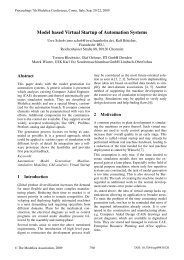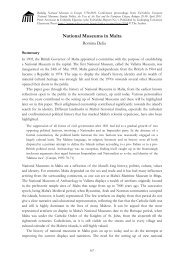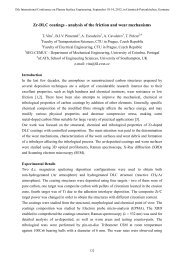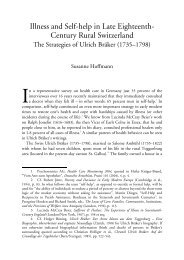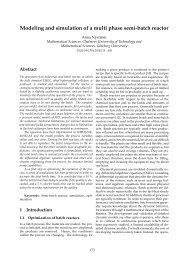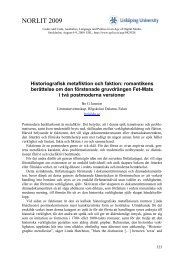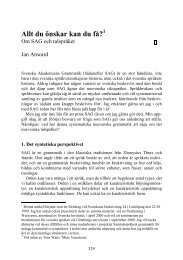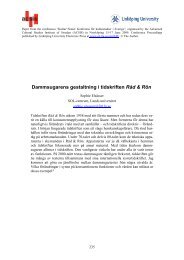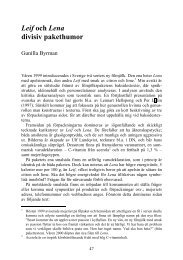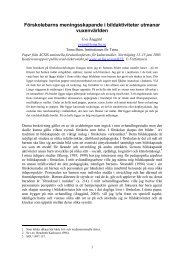Full article (pdf)
Full article (pdf)
Full article (pdf)
Create successful ePaper yourself
Turn your PDF publications into a flip-book with our unique Google optimized e-Paper software.
International Journal of Ageing and Later Life<br />
on survival (Vass 2010). So, this kind of intervention has proved to be a<br />
suitable instrument for maintaining elderly people’s (80 years old and<br />
over) autonomy, independence and functional ability, and in allowing<br />
them to remain in their own homes as long as possible. In our study, we<br />
ask what happens during the home visits that make them so apparently<br />
successful?<br />
Theoretical approaches<br />
The Dutch philosopher Annemarie Mol’s work on care has inspired my<br />
understanding of the practice of PHV. I argue, that home visits in practice<br />
can be understood as a negotiated, symmetrical and shared care process<br />
equivalent to the logic of care (Mol 2008) that is characterised by health<br />
providers who take into consideration the user’s preferences, resources<br />
and networks available to them. The care process is open-ended health<br />
negotiations that are linked to a citizen’s everyday life, characterised<br />
by shared doctoring (Mol 2008) and tinkering (Mol 2010) as on-going<br />
adjustments to the care process; in contrast to the logic of choice, a form of<br />
care that presents different actions or treatments to choose between.<br />
The <strong>article</strong> also examines if the home visits can be seen as an enactment<br />
of a ‘‘politics of active ageing,’’ and accordingly as a bio-political intervention<br />
in which elderly citizens are encouraged to be active. Michel<br />
Foucault introduced biopolitics as an umbrella term for the ways in which<br />
the state and other authorities assume the task of managing citizens’<br />
everyday lives by introducing systems for education, welfare, health care<br />
and so on. Foucault argues that the coercive power of sovereignty has<br />
historically given way to a modern, decentred form of governmental<br />
rationality that produces subjects who act in accordance with forms of<br />
political paradigm and power. Thus, biopower is understood as a web of<br />
cultural practices. In Foucault’s work, a recurring theme is that the truths<br />
that are produced in the name of science also change the human as a<br />
subject when they are made available as concrete practices and techniques.<br />
Through activities like life style change and exercise, the body becomes an<br />
object that the subject is faced with and must do something with. In<br />
Foucault’s understanding, this objectification process is negative because it<br />
implies control, but it may also be positive because the objectification<br />
8



